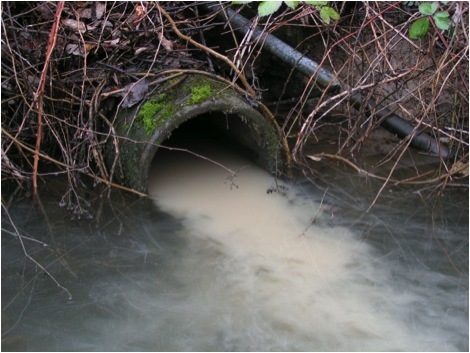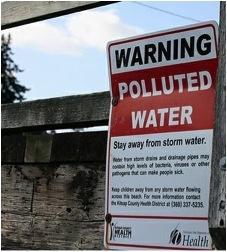This post was written in collaboration with Columbia Riverkeeper.
Was it the holiday spirit of reconciliation? Or did everyone just spend too much time lingering under the mistletoe? In the end, we'll never know what brought a close to the long-running effort by community groups to force one of Washington State's largest counties, Clark County, to deal with its dirty stormwater pollution. Located across the Columbia River from Portland, Oregon, Clark County is home to the largest metro area in southwest Washington. The settlement requires Clark County to comply with the Clean Water Act and pay a penalty of $3 million to an independent board dedicated to salmon recovery. This stands out as one of the largest penalties in a Clean Water Act citizen suit in Washington State history.
It all started back in 2009 when Clark County brokered a deal with state environmental regulators. Stormwater pollution is the leading cause of murky, unhealthy rivers in Washington State. Cities and counties are subject to special permits designed to get at the heart of the problem: urban sprawl. The County asked state regulators to approve weaker limits for reducing pollution from big box stores, subdivisions and other sprawl that threatens fragile streams and rivers that once supported the most abundant salmon runs on Earth. The state regulators agreed.
What the County forgot was that there's another sheriff in town: citizens and citizen groups. The Clean Water Act empowers citizens to sue the government -- and polluters -- when they violate the law. That's exactly what the Rosemere Neighborhood Association, Columbia Riverkeeper and the Northwest Environmental Defense Center did. Led by a team of legal eagles from Earthjustice, Clark County's attempt to circumvent the law went on trial. And the County lost. And then the County lost again at the state Court of Appeals. And again in federal court.
That brings it to present day, the holiday season. On December 17, representatives from the County and community groups crowded into sleek conference rooms in a high rise in Seattle. With tens of millions of dollars in liability at stake, the County had every incentive to reach a deal and end the cloud of litigation. As did the community groups. If polluters violate the Clean Water Act, unless the parties reach a settlement, courts must send fines to the U.S. Treasury. In the holiday spirit, it was time to find a solution.
And find a solution they did.
In a resounding victory for communities that rely on eating healthy Columbia River fish and swimming in clean water, the County agreed to comply with the Clean Water Act and make payments totaling $3 million to the Lower Columbia Fish Recovery Board to be used to protect and restore struggling local streams and rivers.
This holiday season share the story of Clark County. In this story, it was regular citizens and a federal court, not the Ghost of Christmas Future, that gave the County a glimpse of what it means to be on the hook for Clean Water Act fines. But in the end, the County saw the light and realized that redemption (in form of complying with the law and restoring rivers) was the answer.

